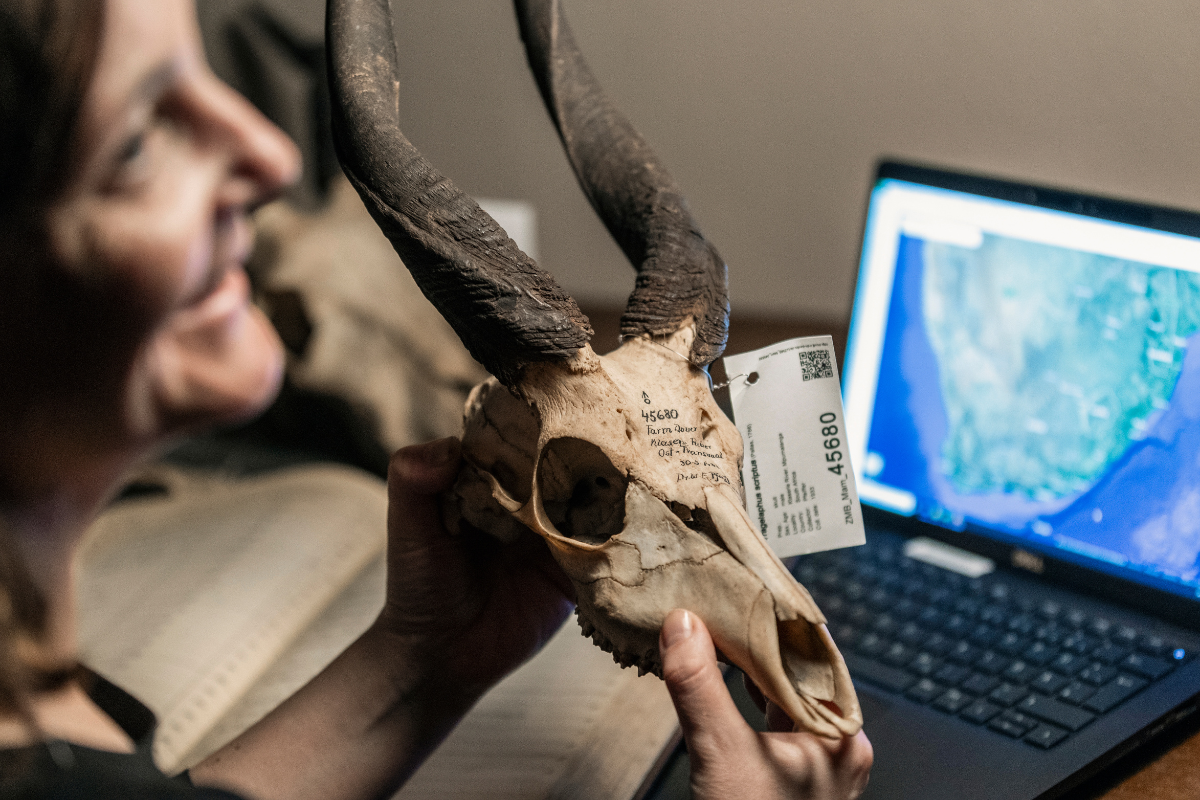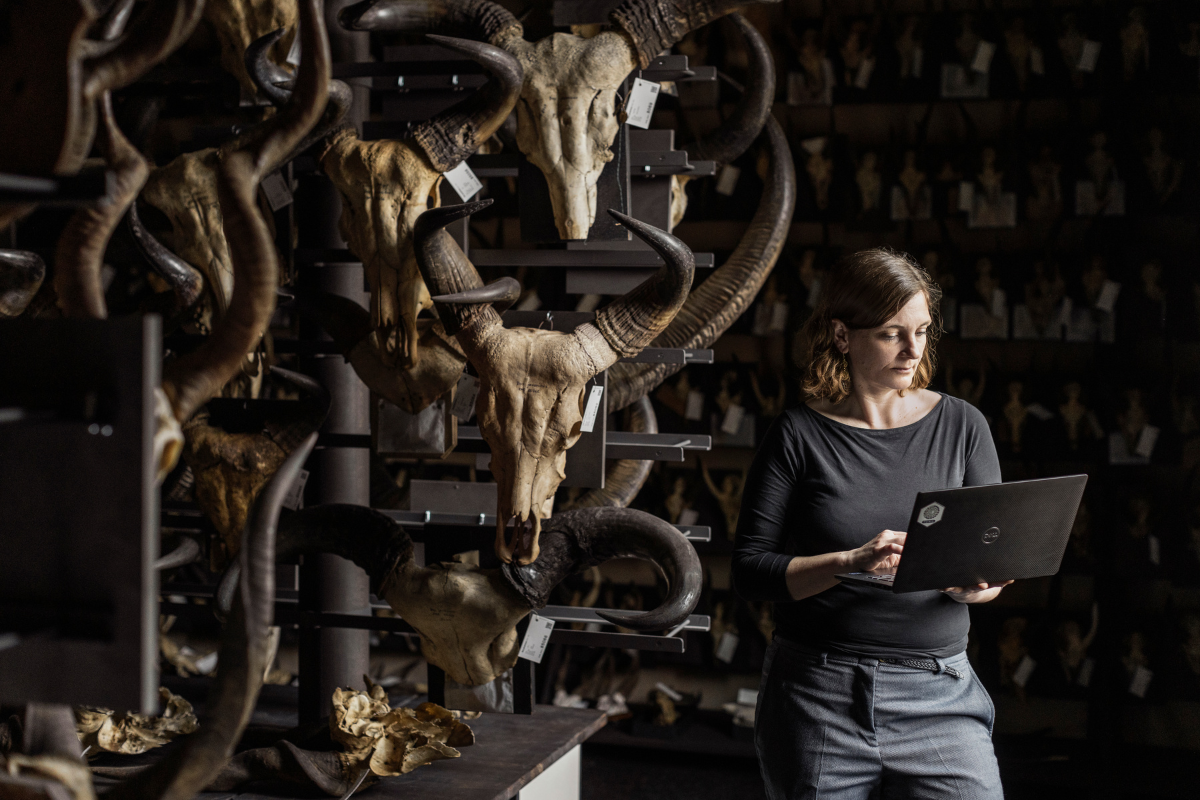Mareike Petersen holds a doctorate in biology and is a data scientist at the Museum für NaturkundeBerlin - and since November 2023 also Strategic Project Manager of the new WiNoDa project. This acronym stands for the ‘Knowledge Laboratory for Natural History Collections and Object-Centred Data’. The aim is to create a customised laboratory for excellent, multidisciplinary research in the field of natural science collections during the three-year funding phase.
Research collections hold a treasure of information and data - with over a billion objects worldwide. These not only tell fascinating stories from times immemorial, but also provide a glimpse into the future. But what to do with all this data? Measurement data, CT scans, volume data, length data, location data, terrain data... Quite a few researchers only think about what to do with it at the end of their project. Wouldn't it have been better to think about it at the beginning? To know before collecting the data how to collect it, with which parameters and standards, in order to analyse it correctly and then publish it in the right place? How do I value data that is already available?
Data expertise is the keyword; this is missing in many places. Mareike Petersen also realised this and submitted her project proposal: to increase data literacy in science. A pilot study anchored in the project is based on an archaeological excavation location in Turkey. Here, biology and archaeology are linked from the outset during data collection, and are thought about and analysed together. Research, learning and networking - these are the three main areas on which the knowledge lab focuses.
There will be seminars and learning material that can be accessed free of charge. Physical workshops are also planned to bring together researchers from different disciplines, as well as courses on ethical issues such as colonial and other contexts of injustice. There are five employees at the museum for this purpose. In addition to the project manager, one person is responsible for natural history learning content, courses and accompanying materials. A project coordinator who also looks after the website, for example.

A community management team that will take over the planning of workshops and a position for public engagement. When the second location of the museum in Adlershof, which is being built as part of the future plan, is completed, there will be a common place where scientists, doctoral students and non-discipline-specific interested parties can meet and network. WiNoDa is a group of research and supporting organisations throughout Germany that work together. The Berlin Natural History Museum contributes its knowledge, which is based on a collection of 30 million objects and includes both physical and digital parts.
Partners in the project are the German Archaeological Institute with its collection and expertise in dealing with object-centred data, the Zuse Institute Berlin with the necessary IT resources for storing, processing and displaying data, the Network Centre of the Joint Library Network GBV for the development of an open information infrastructure, the Networking and Competence Centre Open Access Brandenburg at the Potsdam University of Applied Sciences with its knowledge in the areas of Open Science and Open Educational Resources (OER) and the Gesellschaft für Biologische Daten e. V. with its expertise in the management of research data.


